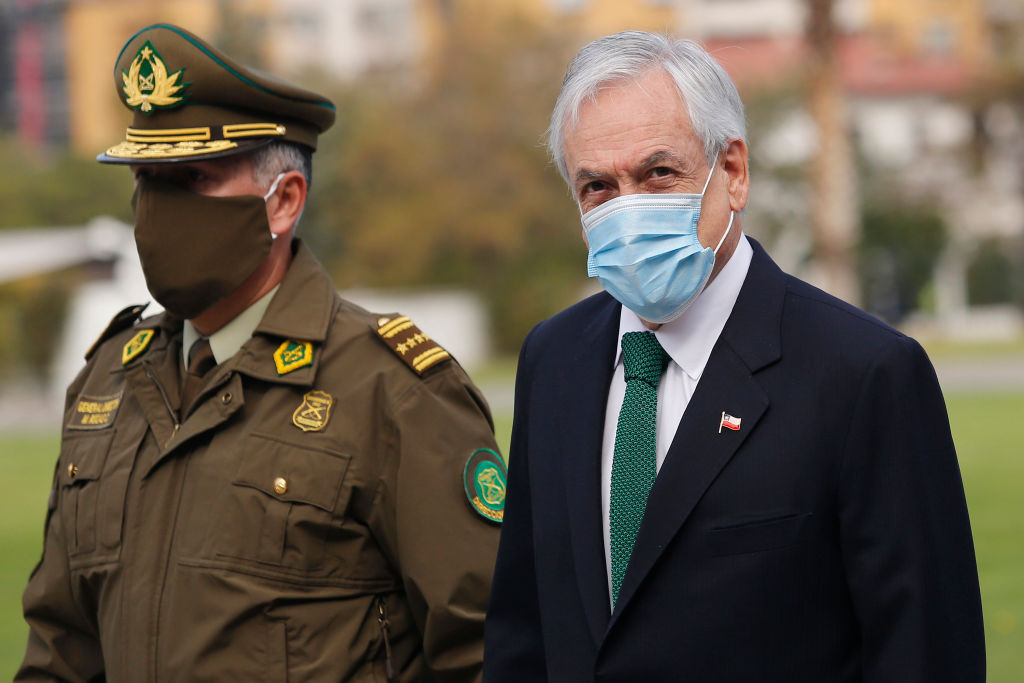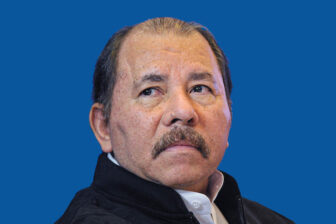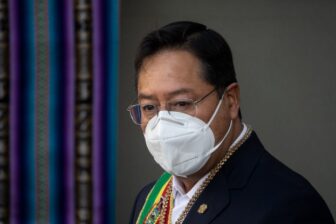SANTIAGO – Since the fault line in Chile’s social contract became visible back in October 2019, the solitude of the presidency has been the only companion President Sebastián Piñera can count on. The skilled management style and fiscal responsibility that led Chileans to re-elect him in 2017 have not garnered him any sympathy this time around, despite his handling of the pandemic. Piñera’s administration made deals with pharmaceutical companies before vaccines were even ready and started an efficient vaccination campaign early on. The speed of the process considerably lessened the impact of the pandemic over the country’s economy, but it has not protected him from an early lame duck status at a moment when the country is going through a historic process.
While all leaders around the globe are dealing with the pandemic’s health and economic crises, Chile is also beginning a constitutional process that could either pave a stable future or unravel the social, economic and political landscape that has put the country on a path to developed economy status. Writing a new constitution is a process that requires firm leadership – which the weakened president has been unable to provide.
The first half of the year has been marked by election campaigns for Congress, municipal posts and the Constitutional Assembly itself, with the seduction of populism instead setting the tone to the political debate. One clear demonstration of this was Congress’ approval of a third withdrawal from pension accounts on April 23 despite presidential opposition. This decision by the legislative puts additional pressure on an already battered pension system, which is a major tool underpinning the framework for the country’s economy. The decision could also result in a sell-off by pension managers of another $55 billion in real assets to honor the mass withdrawals.
Piñera’s elusive personal style is partly to blame, as the president finds himself politically isolated, and with plunging approval rates. A late April poll by the Center for Public Studies shows his government’s approval rate barely hitting 9%. This scenario has emboldened the opposition. The Senate’s president, Jaime Quintana, told the press recently that if Piñera wants Chile to be governed, he should stand back and let Congress run the country, suggesting a de-facto parliamentary system. Open challenges to presidential authority such as this may reflect Piñera’s weakness right now, but in fact it undermines the country’s institutions altogether.
Many parties on the left and almost two-thirds of the right already blame the uncertainty that followed the 2019 protests on Piñera’s inept dealing with social issues. The pressure over his administration that ensued led to the dismissal of several key political allies, leaving the president isolated, with almost two years to go in his term. Then the pandemic sealed his fate. It is still impossible, however, to obfuscate the president: He isn’t only knowledgeable of economics, he is also a resilient political player who knows the price of power. Despite the adverse scenario – social unrest, the pandemic’s health and economic toll – Chile, along with Uruguay, is on course to be one of the first middle-income countries to reach enough vaccinations to allow a return to normalcy. Not that this is being noticed by Chileans, as political polarization rages on.
Chile is a middle-class country, and that means middle-class expectations. Nearly two-thirds of Chile’s 19 million people fall into the middle class, but nearly 60% of these households are classified as lower-middle class. This latter group averages only 9.6 years of formal education, and that impacts access to higher paying jobs – and the fulfillment of the middle-class dream. According to academics like Cecilia Cifuentes, that was exactly why Chileans flooded the streets two years ago.
The hopes that a new constitution would be enough to heal Chile’s wounds and right the wrongs was always a bit naïve, but without a strong leader to steer the ship, the process is now in peril of succumbing to a fragmented political landscape – and a tough puzzle for the next president Chileans will elect in November.
—
Schmidt is a journalist, columnist in the digital newspaper El Líbero, and professor at Chile’s Universidad de los Andes.







